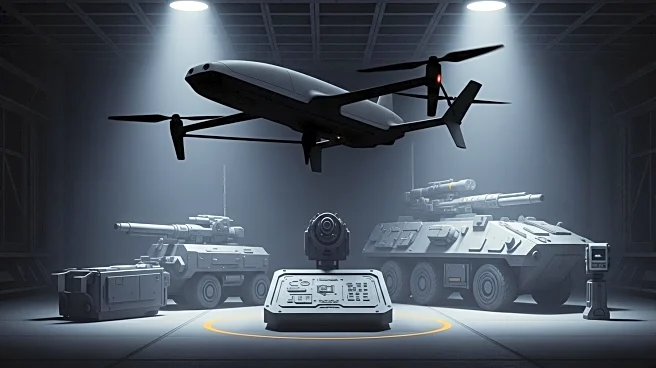What's Happening?
Polish Prime Minister Donald Tusk has announced plans to advance military modernization after Russian drones entered Polish airspace, prompting NATO to address a potential threat. The incursion, seen as a deliberate provocation, occurred amid ongoing Russian strikes on Ukraine, raising fears of a broader conflict. Poland plans to introduce air traffic restrictions and close its border with Belarus, where Russian troops are gathering for military exercises. Tusk praised Polish and NATO forces for their response and highlighted the upcoming delivery of F-35 fighter jets from the U.S. as part of efforts to bolster Poland's defense capabilities.
Why It's Important?
The drone incursion into Polish airspace represents a significant escalation in regional tensions, potentially impacting NATO's strategic posture and European security. Poland's commitment to military modernization reflects the growing need for enhanced defense capabilities in response to Russian aggression. The situation underscores the importance of NATO's collective defense strategy and the role of U.S. military support in ensuring regional stability. The incident may also influence European Union policies and sanctions against Russia, as leaders call for stronger measures to counteract Russian provocations.
What's Next?
Poland will continue to implement air traffic restrictions and border closures as part of its national security strategy. The delivery of F-35 fighter jets from the U.S. is expected to strengthen Poland's defense capabilities, with the first batch anticipated next year. European leaders may push for increased sanctions against Russia, while NATO could reassess its defense strategies in light of the recent incursion. The situation may also prompt further diplomatic efforts to resolve the conflict between Russia and Ukraine.










